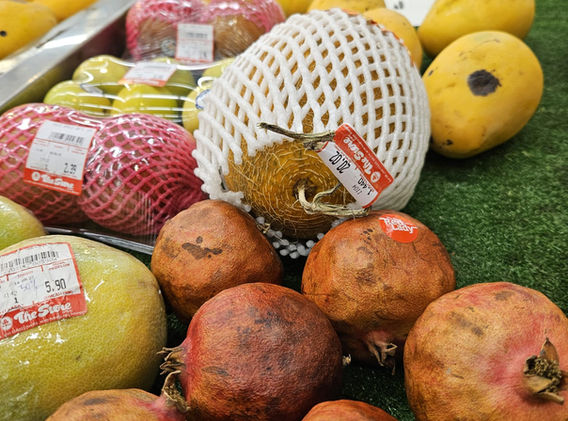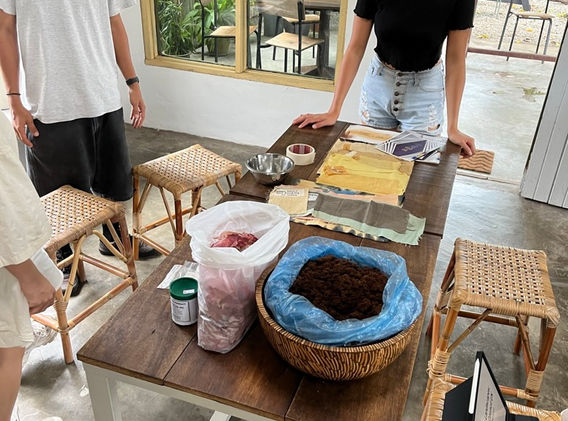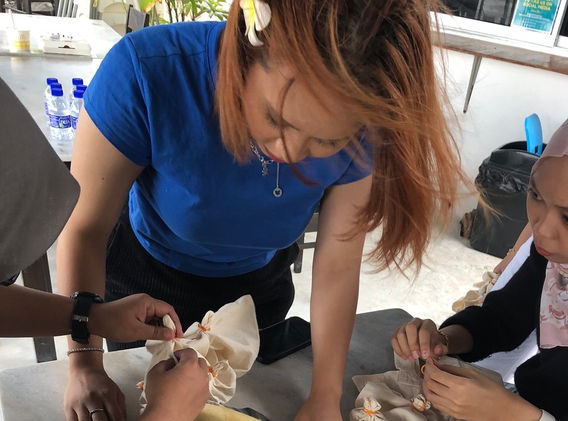DuniaMotif
About the Project
Waste Not explored methods of producing natural textile dyes derived from food waste. The collaborative project worked with youth groups and small businesses in the UK and Malaysia to share knowledge of how food waste may be used to create stable natural dyes suitable for clothing and apparel.
The 2023 New Landscapes: FTT Catalyst R&D Grant Scheme was created to foster international collaboration in the realm of responsible and sustainable fashion, textiles, and technology (FTT). By upholding the cultural, social, and environmental values of the FTT sector, the scheme promoted international cooperation through partnerships between small and medium-sized enterprises (SMEs) and academic institutions in the UK, as well as international SMEs.
For this catalyst scheme, DuniaMotif collaborated with UK-based artist Caroline Hyde Brown and other innovative entities. This partnership focuses on developing eco-friendly textile-dyeing methods that utilize food waste as a sustainable resource. The involvement of Caroline Hyde Brown adds a unique artistic perspective to the project, enriching the creative process and outcomes. This initiative highlights a global commitment to creating a more responsible and environmentally-friendly fashion and textiles industry


Ummi Junid from DuniaMotif


By exploring natural dye recipes and processes, the Waste Not project aimed to establish circular applications for domestic and industrial food waste–reducing the amount of organic waste that ends up in landfill and providing a more sustainable alternative to synthetic dyes.
As part of the Waste Not project, DuniaMotif and Caroline Hyde Brown have prepared a series of color samples collected from two different locations: Diss in the UK and Port Dickson in Malaysia. These distinct geographies provide a diverse range of food waste materials, allowing the project to explore the creation of colors derived from locally sourced food waste in each city.
Each area presents unique conditions such as weather temperature, pH levels in the water, and the technique of dyeing employed by both artists. These variables significantly influence the dyeing process and outcomes, offering valuable insights into how local environmental factors and traditional practices can affect sustainable dyeing methods.
This comparative study aims to highlight the potential for eco-friendly dyeing practices that are both environmentally conscious and reflective of local resources and conditions.
Process/Exploration from Caroline Hyde Brown
Process/Exploration from Ummi Junid
Collection of 'Waste Not' Culinary Dyes Catalogue

Coconut Husk

Mangosteen Skin

Brown and Red Onion Skin

Coffee Ground









































